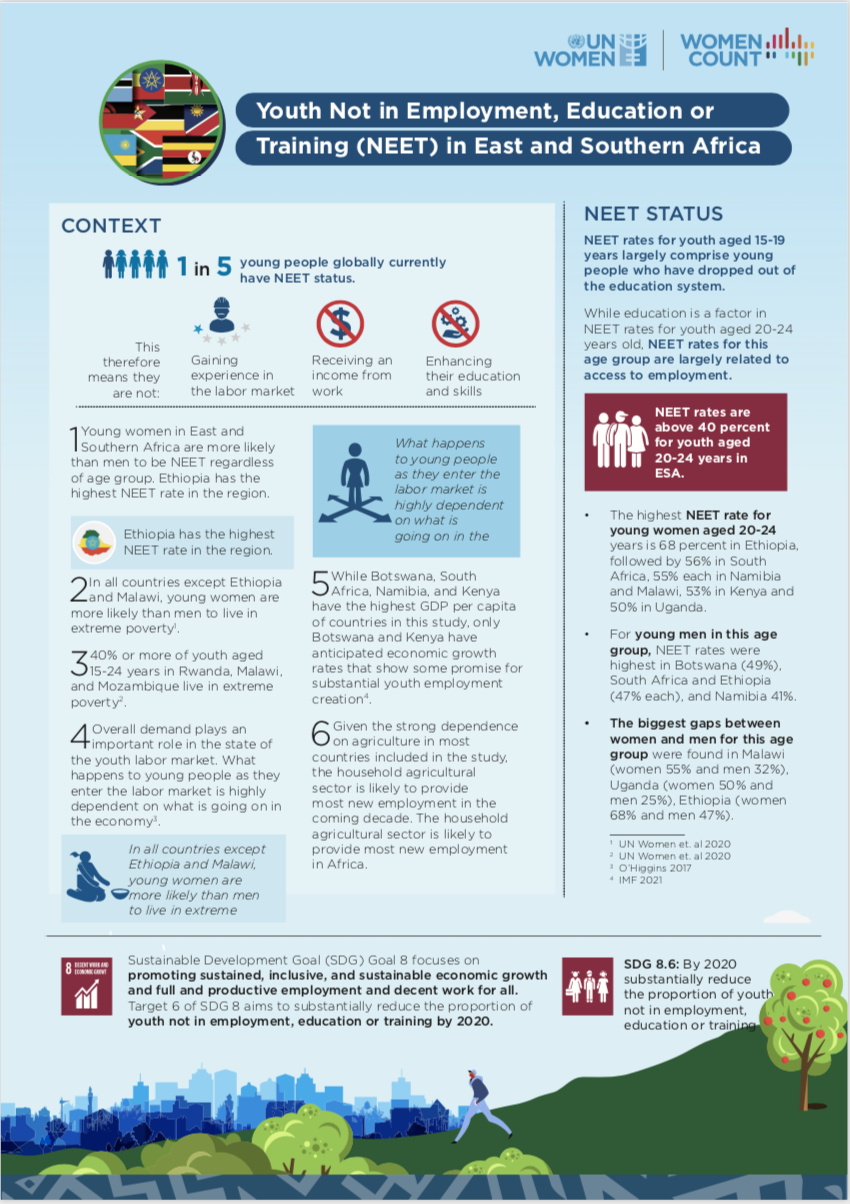
The Status of NEET. A quantitative analysis of A Quantitative Analysis of Youth Not in Employment, Education or Training (NEET) (15 – 24 years old)

Target 6 of SDG 8 aims to substantially reduce the proportion of youth not in employment, education or training (NEET) by 2020. This links well with UN Women’s groundbreaking, multigenerational campaign: “Generation Equality: Realizing Women’s Rights for an Equal Future”. To ensure that recovery from the COVID-19 pandemic also impacts on reducing the number of youth NEET, especially young women, UN Women East and Southern Africa commissioned quantitative research covering nine countries in the region: Botswana, Ethiopia, Kenya, Malawi, Mozambique, Namibia, Rwanda, South Africa, and Uganda.
NEET rates are intimately associated and connected with what is happening in the economy and labour market of a particular country. The contextual findings of the study suggest that in all countries except Ethiopia and Malawi, young women are more likely than men to live in extreme poverty. While Botswana, South Africa, Namibia, and Kenya have the highest GDP per capita of countries in this study, only Botswana and Kenya have anticipated economic growth rates that show some promise for substantial youth employment creation. Given the strong dependence on agriculture in most countries included in the study, the household agricultural sector is likely to provide most new employment in the coming decade. NEET rates for youth aged 15-19 years largely comprise young people who have dropped out of the education system. NEET rates in this age group are higher than 30 per cent in Botswana, Ethiopia, and Mozambique and between 20 and 30 per cent in Malawi, Namibia, Uganda and Rwanda.
Since the onset of the COVID-19 pandemic and associated worldwide economic decline, East and Southern Africa (ESA) has suffered job losses and an increase in poverty, interruptions in healthcare services, and declined nutrition levels. Young adults whose place in the labor market is often informal, temporary, and tenuous at best have suffered greater job and income losses than their parents.
As part of ensuring that recovery efforts also reduce the number of youth, especially young women, not in employment, education, or training (NEET), UN Women in ESA commissioned a quantitative study on the NEET status of youth aged 15-24 years in nine countries in the region.
This report summarizes the country findings and provides a detailed analysis of available NEET data for youth aged 15-24 years with a view to supporting evidence-based policy advocacy and action in this area. This study covers Botswana, Ethiopia, Kenya, Malawi, Mozambique, Namibia, Rwanda, South Africa, and Uganda.